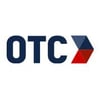
OTC Insights Team
Established in 1963, OTC Industrial Technologies (Ohio Transmission Corporation) is one of the largest industrial distributors & service providers in the United States. We're committed to seeing industrial operations advance through expert technical solutions & unmatched support using our years of experience.
Finding the right team is difficult, especially for manufacturers. With ongoing labor shortages and the rise of remote work, finding skilled personnel in the manufacturing industry hasn’t been easy. This challenge has slowed growth for many businesses, but understanding how to overcome the talent crisis can help get your operation back on track.
Strategies for Overcoming the Talent Acquisition Crisis
Traditional recruitment and training methods don’t always work. To attract the new generation of manufacturing professionals, you may need to rethink your hiring practices. While no strategy is perfect, experimenting with a few methods to find what works will help you reach your hiring goals.
Here are five tips that can help you navigate the talent crisis.
Revamp Your Internal Training Pipeline
After successfully finding talent, going through the hiring process, and getting them started on the job, the last thing you need is an increase in your employee turnover rate. Finding new team members is enough of a challenge, so holding on to them is essential.
If you’re experiencing a high rate of turnover, you may want to examine your onboarding schedule. The right training helps your employees feel confident, which can lead to greater work satisfaction and retention. Training can give employees the feeling they are growing and building a career, which is critical to being happy on the job.
Work with Partners that Can Provide Additional Workforce
If you need to pull together a team quickly and don’t have time to go through an extensive hiring process, working with a third party can help. For example, when a machine goes down or maintenance is necessary, rather than pulling valuable workers off the line, utilize an outside resource to handle field repair work or preventative maintenance. They not only have the experience and skill to handle the repair, but they also won’t interrupt ongoing operations.
Solution-focused service providers like OTC have engineers on staff, as well as teams and workshops dedicated to repair and service work. Often, they not only deliver a faster solution that takes the pressure off your team, but they can also provide additional services like efficiency optimization to boost the value of the work. 
Consider Going Green
When looking for jobs, many young people prefer to work for companies that have ecologically sustainable practices. In fact, recent studies have shown that workers are gravitating to companies that are committed to sustainable practices. This is especially true for manufacturing, which is not perceived as being environmentally friendly.
While going green can be an effective strategy for attracting a younger generation of workers, it can have many additional benefits as well. For instance, there are government programs that often provide monetary incentives for adopting green practices, so it can also provide escalating advantages.
Establish a Social Media Presence
When searching for new team members, it’s hard to be heard over all the noise. Modern workers tend to search for jobs online, so if you don’t have a large digital presence, you may struggle to reach your audience. People can’t apply for a job if they don’t know about your open position or anything about your business.
Developing a social media presence not only promotes your brand to potential customers, but it also helps you reach qualified personnel. Consider asking your current workforce for content to post. Feature an employee, let them talk about their work, and provide positive (and public) support for all the work your employees do. Over time, people will know that you are a good company to work for, you’ll show appreciation for your current employees, and you’ll have more people excited to work with you.
Listen to Your Team
Your team is one of the best resources you have. If you want to expand your current workforce, taking time to listen to suggestions can help. Ask them what you can do to make your factory a better place to work, and then act on the suggestions they offer. Whether it’s a better cafeteria, or healthy snacks, or a little more time off, these suggestions not only make your business more appealing to new workers, it helps with job retention.
Safety is one area where you may get suggestions and strong opinions. If your training program could use some work, or your team would like more comprehensive safety practices, acting on this feedback can help. You’re searching for new team members, so listening to your existing ones is a great place to start.
Building an Employee and Future Growth Strategy for Manufacturing
Your manufacturing business is only as strong as your workforce. You can’t fill a new order or deliver a new product if you don’t have the employees available. That’s why a new employee strategy is critical, and why it is so important to have a plan for supporting employees with an outside service provider.
No matter what challenges you’re facing, OTC can help. Whether it’s a new machine for the shop floor, or a quick repair on a critical asset, OTC can deliver fast solutions to your biggest, most complex production challenges. If you need help fast, our team is ready to jump on your project and see it to completion. If you want to discover more effective ways to train your employees and get them up to speed quickly, we can help with that too. Contact us to learn more.
Stay up to date
SUBSCRIBE TO OUR BLOGPosts by Tag
- General Manufacturing (102)
- Compressed Air Solutions (61)
- Automotive (35)
- Finishing and Dispensing (33)
- Rotating Equipment (31)
- Maintenance & Repair Services (22)
- Industrial Automation (21)
- Case Studies (19)
- Electronics & Semiconductor (16)
- Sustainable Manufacturing (12)
- Energy Efficiency (10)
- Filtration (9)
- Energy, Power & Utilities (8)
- Oil & Gas (6)
- Food & Beverage (5)
- Biotech & Pharmaceutical (4)
- Chemical & Petrochemical (3)
- Industrial OEMs (3)
- Steel & Metal Manufacturing (3)
- Aerospace (2)
- Agriculture (2)
- Packaging & Processing (1)
- Pulp & Paper (1)


